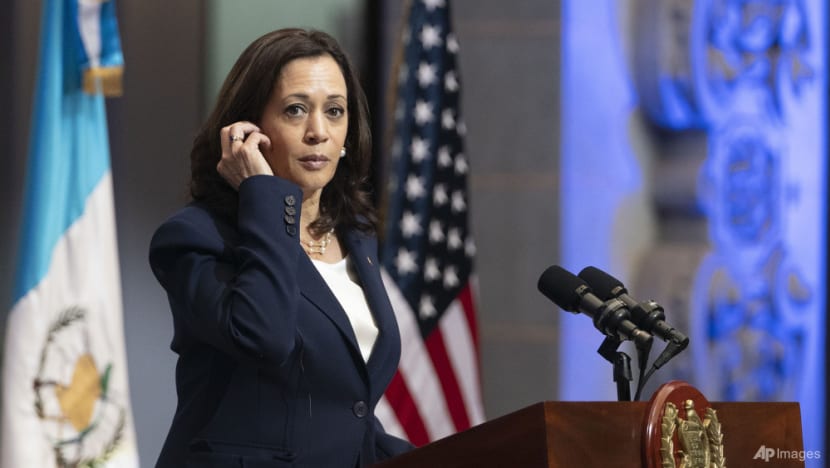Commentary: Why is everyone so bothered by Biden's age?
The 79-year-old US President has been constantly associated with 'senility' and 'dementia' by Republican figures, despite how well he has done so far, says the Financial Times' Edward Luce.
WASHINGTON DC: On no topic is the bifurcation of America’s media more evident than that of the president’s age. To the conservative media world, Joe Biden’s imagined senility is a staple.
Republican figures routinely call for him to take cognitive tests. The term “dementia” is bandied about. By contrast, the closest traditional outlets have come to addressing Biden’s age is a spate of reports into the low ratings of his vice-president, Kamala Harris.
For them, it is as if openly acknowledging Biden’s advancing years would validate the conspiracy mongers.
That is a mistake. There is no reason to think that Biden is suffering from anything more than traits that characterised him in younger decades, such as foot-in-mouth disease and a tendency to talk too much. Neither of these is degenerative.
In fact, Biden’s malapropisms have noticeably dropped off since he became president while his prolixity is limited by the White House teleprompter.
There are some grounds to suspect he is getting more forgetful — he implied twice last year that Taiwan was a formal ally of the US, a claim his staff had to correct. But there are none to suggest he is senile or suffering from dementia.
Yet that will not stop Biden’s age from becoming a liability. It already is. The president’s official line is that he is planning to run again.
Just 41 per cent of Democratic voters believe Biden would have a better chance of winning the 2024 election than another Democratic candidate.
The equivalent number for Donald Trump among Republican voters is 57 per cent. Some of that gap is to do with age.
Although Trump is only four years his junior, Biden will become the first sitting US president to turn 80 in November. It strains credulity to believe he could have sufficient energy at the end of his second term, when he would be 86.
Treating the topic as off-limits is not a solution. During the last campaign, Biden’s team briefly debated whether to declare he would be a one-term president. They rejected it on the grounds that would turn him into an instant lame-duck.
That logic still holds. Even if Biden does plan to step down after his first term, as many Democrats predict, it would be self-defeating to make it known. Presidential power is a diminishing commodity. Voluntarily conceding more makes little sense.
Yet Biden dropped strong hints in the campaign that one term would be his fill. He described himself as a “bridge” to a younger cohort. Campaign staff depicted him as a “transitional figure”.
Voters could be forgiven for having thought they were being asked to endorse a stop-gap president whose main role was to dispense with Trump and pave the way for the next generation.
That should still be Biden’s goal. Which brings us to the Harris predicament. It is commonplace in Washington for Harris to be dismissed as a lightweight who is stumbling in her duties. Opinion polls back that up.

A recent one has her at the lowest rating of any vice-president in modern US history. It may be true that Harris could not win the presidency — let alone be a successful leader — but Biden’s White House is not giving her much chance to disprove that.
Among recent vice-presidents, only Mike Pence, Trump’s number two, has had less Oval Office sway. Al Gore as Bill Clinton’s vice-president, Dick Cheney as George W Bush’s and Biden himself as Obama’s all played far larger roles.
The assumption was that Harris was added to the ticket because of her identity — a non-white woman who could shield Biden from the impression he was a throwback. Having helped Biden win the election, Harris appears to have served her main purpose.
Though Harris has several nominal roles, the public seems only to have noticed that of stemming migration from Central America’s “northern triangle”. The term poisoned chalice springs to mind.
Given Central America’s endemic corruption, Biden might as well have asked her to fix Afghanistan.
It would be more far-sighted to hand over easier wins, such as fighting corporate monopolies or, given her prosecutorial skills, helping urban mayors like New York’s Eric Adams to combat crime — and reform (not “defund”) the police. That would cast Harris in a different light.
Succession planning is always a fraught business. The risk is that Biden wants to run again but will change his mind at the last moment.
Treating Harris as a spent asset is self-fulfilling. Building up a field of potential successors — his vice-president among them — is Biden’s only responsible insurance policy.
font images google
font redaction https://www.channelnewsasia.com/commentary/joe-biden-age-united-states-democrats-kamala-harris-2420341





Comentários
Postar um comentário